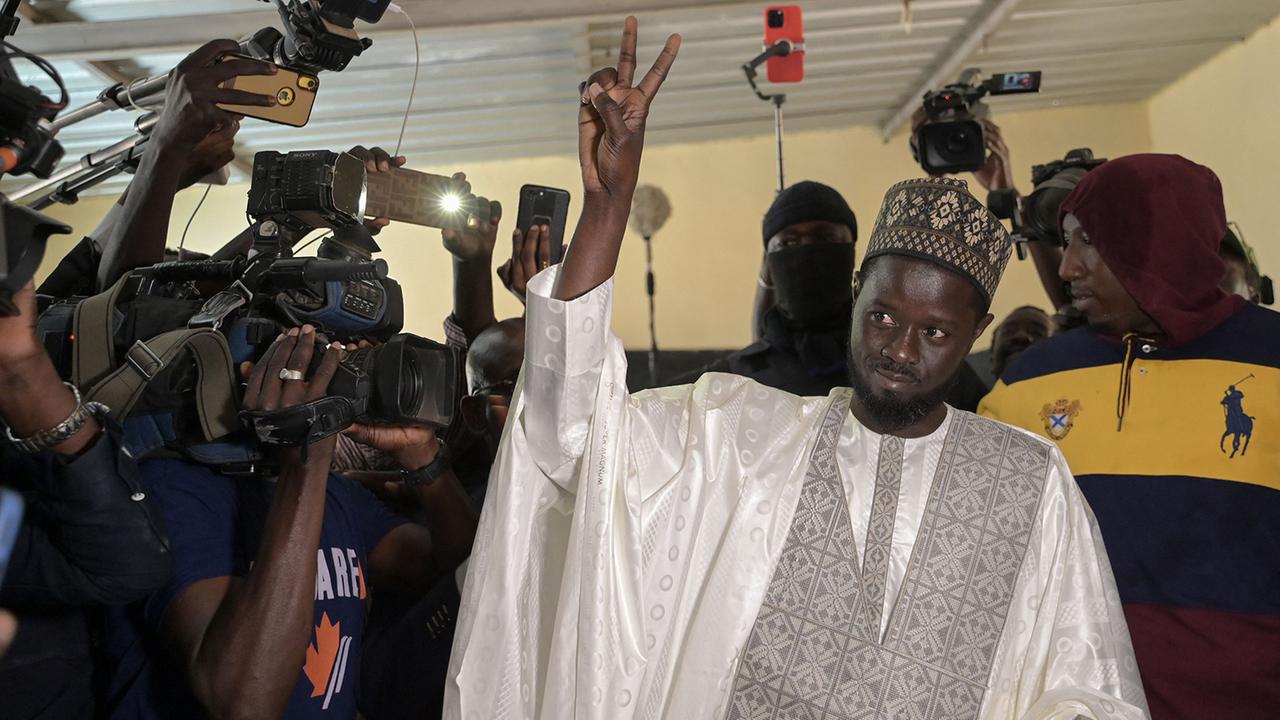Until a few months ago, the opposition politician Faye was almost unknown in Senegal. But now he has surprisingly clearly won the presidential election. Government candidate Ba has already admitted his defeat.
In Senegal, opposition candidate Bassirou Diomaye Faye was elected president with a surprisingly clear majority. Government candidate and former Prime Minister Amadou Ba congratulated Faye on her victory even before the official preliminary results of the election were published on Sunday.
Ba's campaign management had stated a few hours earlier that they were sure “that in the worst case scenario there would be a runoff election.” She even accused Faye's camp of “manipulation.” Now the turnaround followed. Ba wished his opponent Faye much success in a message.
Election campaign with brooms
Faye's entry into the presidential palace would mean a massive political change for Senegal. During the election campaign, Faye described herself as a “candidate for system change” and campaigned with a broom to cleanse the country of corruption and poor governance. He also promised to distribute the income from the country's rich raw material reserves more fairly.
Senegal is considered a stable democracy
For the first time in the history of the West African country, a new president was elected in the first round of voting. Just a few hours after the polls closed on Sunday evening, the counting indicated a clear lead for 44-year-old Faye. In order to win the presidential election in the first round, an absolute majority of votes had to be achieved.
The election to succeed President Macky Sall, who has been in power since 2012, was seen as a landmark for the country with its around 18 million inhabitants. Senegal is one of Africa's most stable democracies and, unlike other countries in the region, has not experienced a coup or military coup since its independence from France in 1960.
Sall has been praised for successes in economic development in the country, where oil and gas production is expected to begin this year. Human rights activists, however, criticize the restrictions on political freedoms during his term in office.
Faye was previously released from prison
Faye ran for the camp of opposition leader Ousmane Sonko and his dissolved African Patriots of Senegal for Work, Ethics and Fraternity (Pastef) party. Sonko, who was particularly revered among young Senegalese as an elite critic and anti-corruption fighter, was not allowed to run because he was convicted in a defamation trial.
Faye, Sonko's close confidant and ex-general secretary of the party, who was completely unknown until a few months ago, was nominated as Plan B. The tax official was only released from prison with Sonko under an amnesty law ten days before the election, where he had been held since last April on charges of defamation and insulting a judge because he had criticized the judiciary in Sonko's trial in a Facebook post.
Deaths in protests
There was a week-long political crisis before the election. Head of State Sall had decided not to run for a controversial third term of office following political pressure, but then surprisingly canceled the presidential election on February 3, which had been scheduled for February 25, because there were disagreements surrounding the approval of the candidates.
After protests with four deaths and weeks of tug-of-war between the institutions, the election finally took place around a month late. A good 7.3 million voters were registered. The official result is expected later this week.




